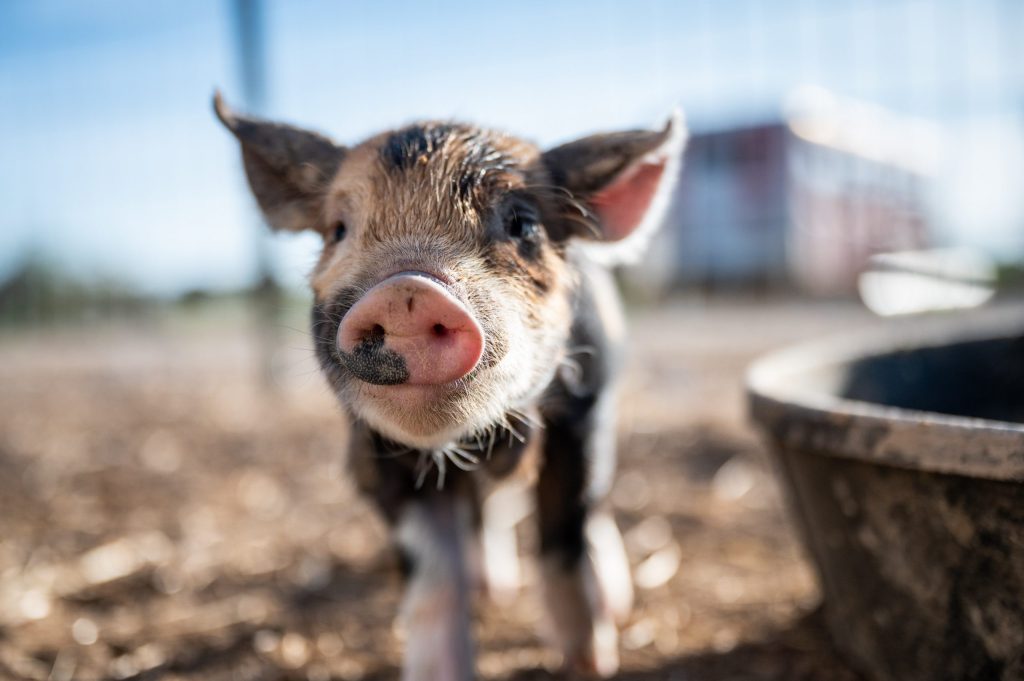Awakening compassion for our kindred animals

The Coronavirus Crisis

The global pandemic of COVID-19 has become a driving force for us to re-examine our place in the world. A new reality has set in, as we face threats to our survivability that are unprecedented in our lifetimes. These are frightening times not only because of the dire threats of the virus to our health, but because we’re undergoing, out of necessity, drastic changes in our daily habits and the ways in which we interact with others. In doing so, we are now face to face with a stark and unavoidable truth: our challenges are deeply connected to our collective loss of compassion for nonhuman animals.
The coronavirus is a warning shot that humans must move away from animal exploitation. Zoonotic pathogens are on the rise. Whether it’s from an animal wet market or the thousands of industrialized factory farms around the world, these are all perfect breeding grounds for the next new virus. At least 75% of emerging infectious diseases can be traced to animals, and the escalating rise of antibiotic-resistant bacteria in factory farms is already a global threat.
When we harm others, we harm ourselves. The consumption of animal products leads to global rises in heart disease, hypertension, diabetes and obesity – the very conditions tied to higher risk of severe illness from COVID-19. For most of the world’s population, it is not essential to eat animals in order to survive. A decisive shift to plant-sourced foods, away from animal products, will not only be the key to a healthier world; it will reduce the risk of future pandemics.
In Harming Animals, We Harm Ourselves

And it’s more than health. Animal agriculture is one of the most destructive industries on the planet. It is a major driver of staggering species and habitat loss, catastrophic environmental damage, resource depletion, and climate change. Our species cannot expect to survive if we continue our egocentric view of the world, that the earth’s resources are inexhaustible and its inhabitants expendable.
Yet the crisis we face is so much deeper that the physical damage of the virus. For it exposes one of the greatest cognitive dissonances of our time: society’s acceptance of mass cruelty and violence inflicted against innocent, nonhuman animals. Many of us, including those with companion animals, would say, “I love animals!” Yet society turns a blind eye to the billions and billions of animals who suffer a brutal and horrifying death, whether in the food, entertainment, research or clothing industries. This is the invisible thread in our lives, so deeply embedded that most of society never questions it. We’ve allowed ourselves to become victims of an ingrained perception that animals we exploit are objects, things and commodities. This despite the fact that they possess, as we all do, the behaviors and feelings of what it means to be a sentient being, including the capacity to suffer.
The Disconnect from our Kindred Animals

And what of the millions of animals now being killed due to disruptions in the meat industry? Virtually no thought is given to them. As a society we are so numbed to this cruel reality that we refuse to acknowledge what it is, instead calling it “euthanasia,” “culling,” or “depopulation.”
This disconnect from our kindred animals is the most violent betrayal of the Golden Rule. It is a direct denial of our most precious and powerful instinct – compassion. Our ability to feel for others is at the center of who we are. More than ever, it is time to open our eyes, our minds and above all our hearts.
A New Future of Food: Sustainable and Compassionate

How then, will we emerge from this crisis? The coronavirus is just one symptom that human influence has reached its point of greatest harm, not only to ourselves, but to our fellow creatures and the planet. Having an honest reckoning about the perils of animal exploitation will give humankind the opportunity to elevate and transform its collective identity towards a conscious awareness that all living beings are connected. It’s about seeing ourselves in others, and widening our sphere of love, sensitivity and kindness in order to lessen suffering. As a single global community we must envision a bold new future of food: redirection of subsidies to plant-sourced foods, meat alternatives, innovative food technologies, and regenerative agricultural practices that allow our planet to heal. Greenhouses in place of slaughterhouses!
I hope that one day we will look back upon the mass killing of animals as a moral atrocity.
Bringing it to an end will be one of humanity’s greatest acts of compassion.
Want to get to know compassion queen Joanne better? Go check out the changemaker piece on Joanne!